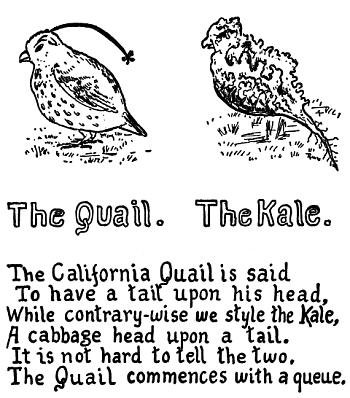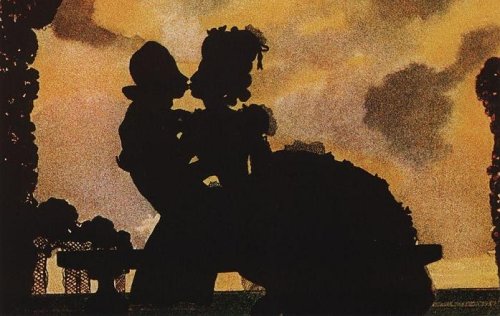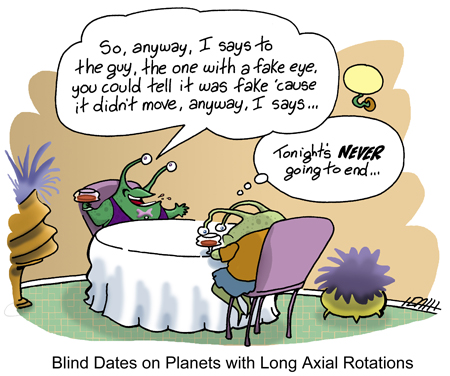Humor
Nobrow Cartoons by Mark Heath
Cartoonist Mark Heath has agreed to let me republish some of his wonderful work here. Let me know what you think.
Limericks

A globe-trotting man from St. Paul
Made a trip to Japan in the faul.
One thing he found out,
As he rambled about,
Was that Japanese ladies St. Taul.
A censor, whose name was Magee,
Suppressed the whole dictionaree;
When the public said, “No!”
He replied, “It must go!
It has alcohol in it, you see!”
There was a young man from the city,
Who met what he thought was a kitty;
He gave it a pat
And said, “Nice little cat!”
And they buried his clothes out of pity.
— Carolyn Wells’ Book of American Limericks, 1925
Near Thing
‘Well, do you know the one,’ I began, ‘in which two geologists converse in a cafe? One of them says: ‘Yes, unfortunately fifteen billion years from now the Sun will cool, and then all life on Earth will perish.’ A card-player nearby has been half listening to the joke, and turns in terror to the geologist: ‘What did you say? In how many years will the Sun cool?’ ‘Fifteen billion years,’ the scientist replies. The card-player lets out a sigh of relief: ‘Oh, I was afraid you said fifteen million!’
— László Feleki in Impact of Science on Society, 1969
“The High Standard of Education in Scotland”
We were staying in Ballater, a small town on Deeside in Scotland. In the town was a tiny shop which sold tourist attractions and picture postcards, and in its minute window was a very fine specimen of smoky quartz material. Buying a postcard, I said to the proprietor, ‘That’s a fine group of smoky quartz in your window’ and had this reply in very broad Scotch:
‘That’s no smoky quartz, that’s topaz. It’s a crystal. You can tell crystals by the angles between their faces. If you’re interested I’ll lend you a book on the subject.’
I knew enough (crystals being rather in my line) to be sure it was smoky quartz, and on return to base looked up a book on Mineralogy which said ‘Smoky Quartz, also known as Cairngorm, is called Topaz in Scotland.’
— Sir W.L. Bragg, quoted in R.L. Weber, A Random Walk in Science, 1973
Intro Zoology

How to tell a parrot from a carrot, from American physicist Robert W. Wood’s extracurricular How to Tell the Birds From the Flowers: A Manual of Flornithology for Beginners (1907):
The Parrot and the Carrot we may easily confound,
They’re very much alike in looks and similar in sound.
We recognize the Parrot by his clear articulation,
For Carrots are unable to engage in conversation.
Below: A further distinction.

Work Smarter, Not Harder

An organization and methods engineer submitted this report after visiting the Royal Festival Hall:
For considerable periods the four oboe players had nothing to do. Their numbers should be reduced, and the work spread more evenly over the whole of the concert, thus eliminating peaks of activity.
All the twelve violins were playing identical notes. This seems unnecessary multiplication. The staff of this section should be drastically cut; if a large volume of sound is required, it could be obtained by means of electronic amplifiers.
Much effort was absorbed in the playing of demisemiquavers. This seems to be an unnecessary refinement. It is recommended that all notes should be rounded up to the nearest semiquaver. If this were done it would be possible to use trainees and lower grade operatives more extensively.
There seems to be too much repetition of some musical passages. Scores should be drastically pruned. No useful purpose is served by repeating on the horns a passage which has already been handled by the strings. It is estimated that if all redundant passages were eliminated, the whole concert time of two hours could be reduced to twenty minutes, and there would be no need for an interval.
The Conductor agrees generally with these recommendations, but expresses the opinion that there might be some falling-off in box-office receipts. In that unlikely event it should be possible to close sections of the auditorium entirely, with a consequential saving of overhead expenses — lighting, attendants, etc.
If the worst came to the worst, the whole thing could be abandoned and the public could go to the Albert Hall instead.
— From NPL News 236, 17 (1969)
Limerick
A sleeper from the Amazon
Put nighties of his gramazon.
The reason? That
He was too fat
To get his own pajamazon.
— Anonymous
Eventide

She: What are you thinking about?
He: The same thing you’re thinking about.
She: You’re very vulgar.
(From Intelligent Jokes, by Sion Rubi, 2004.)
“Office Mottoes”
Motto heartening, inspiring,
Framed above my pretty desk,
Never Shelley, Keats, or Byring
Penned a phrase so picturesque!
But in me no inspiration
Rides my low and prosy brow —
All I think of is vacation
When I see that lucubration:
![]()
When I see another sentence
Framed upon a brother’s wall,
Resolution and repentance
Do not flood o’er me at all
As I read that nugatory
Counsel written years ago,
Only when one comes to borry
Do I heed that ancient story:
![]()
Mottoes flat and mottoes silly,
Proverbs void of point or wit,
“KEEP A-PLUGGIN’ WHEN IT’S HILLY!”
“LIFE’S A TIGER: CONQUER IT!”
Office mottoes make me weary
And of all the bromide bunch
There is only one I seri-
Ously like, and that’s the cheery:
![]()
— Franklin Pierce Adams, Tobogganning on Parnassus, 1913


